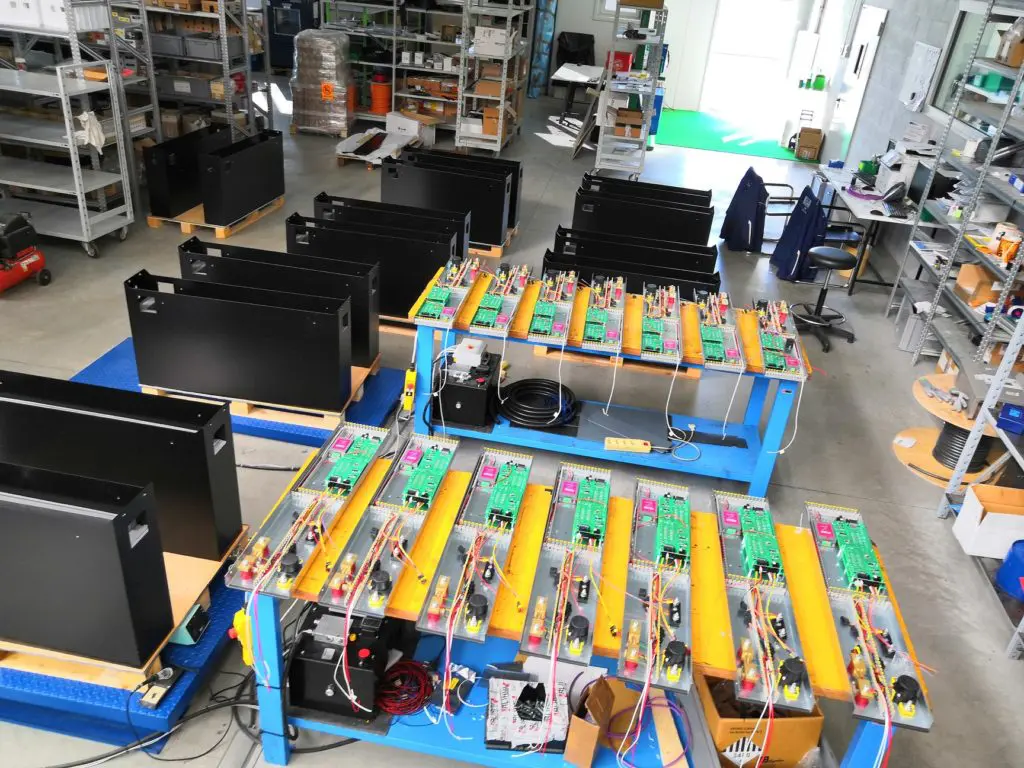Aerial platforms, road sweepers, AGVs, earth-moving machines are the most difficult applications in which lithium batteries find space for ad-hoc integration. At first glance it would seem to be in front of machines that are very similar to each other, yet the reality is very different. Just imagine integrating a standard lithium battery on one of these machines, to understand how paradoxical it can be. Size and shape play a very important role in the battery design phase. The same manufacturer of the machine after a few months can carry out a review on the project, such that it is necessary to redesign even the same size of the battery.
It goes without saying that in this field, the advice and availability of an efficient partner who is always ready to solve these problems is of fundamental importance for a company.
“Improving ourselves is part of human nature, questioning existing and new projects and then reaping the advantages to offer to the market makes us perfectionists – underlines Federico Peluso, Aliant Sales Manager -. Being able to support our customers in this study phase is something exciting and rewarding for us. The synergy that is created between the two technical departments, the market needs analyzed in the commercial field engage well-oiled gears for the packaging of a product cut out on well-defined parameters. And it is precisely in these phases that we find ourselves daily tailoring our customers’ machines with custom batteries in Taylor Made execution “.
Degree of protection, paint and case material, current peaks, charging speed, communication protocols, operating temperatures, are the many details that Aliant takes into consideration when starting the customization of one of its batteries.
“The configuration of the logics between battery and machine is fundamental in the final phase of the project – continues Peluso -. It is reasonable to think that each manufacturer requires different specifications for the different models of their machines. In this we try to make our customers as independent as possible after the machine is put into service. In fact, by giving access to each parameterization they request, they become free to carry out firmware updates independently “.
“Furthermore – explains the Aliant Sales Manager -, a factor not to be left to chance is the speed of execution and response to the various
requests made by the customer. Often during the various production steps of the machine, the space dedicated to the battery is at the bottom of the list. For our part, we cannot afford the luxury of keeping projects blocked and for this reason, the execution time of an Aliant EK Series battery is usually around 5 weeks “.All this is necessary to give life to what today represents Aliant’s core business, the EK Series.
